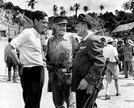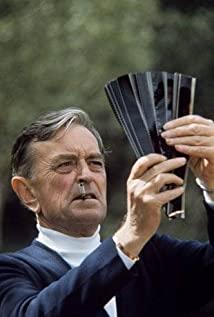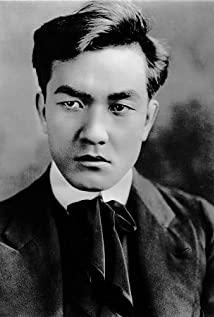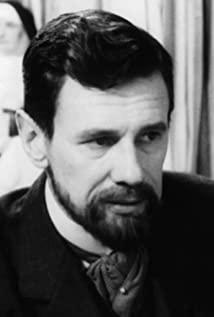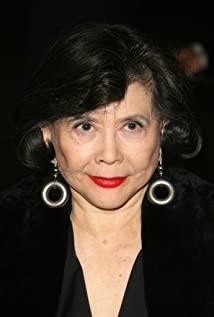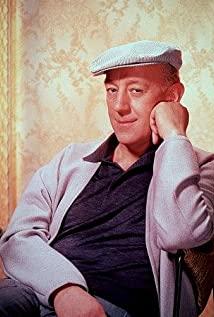Colonel Nicholson is a very arrogant man. He is principled, law-speaking, stubborn and stubborn, he can't find a way back, and achieves his goals at all costs. However, there was nothing in his life that he could be proud of. Others in the British army had never heard of him, and no one cared about him and his surrendered subordinates. He has been in India for many years, building bridges and roads, he loves India. He needs to create, he needs tangible achievements. In his heart, he simply did not accept that this was the reality of a war. He is a gentleman, a standard gentleman, he will not change because of anything.
Shields is not a gentleman, or I can say that he is a bastard. He didn't want to fight at all, he didn't want to be a soldier. But he is very smart. He knows how to pass the test and how to relieve his pain. He has no principles and no standpoint. He is his own way, but it is such a person who can get real happiness.
Colonel Saito, he is not an ordinary person, he is a soldier. Although he is a devils, he is a real soldier. He has honor and shame. His goal was to build the bridge, but in the end he didn't build the bridge. He admired the skills of the British and at the same time was ashamed of his incompetence. When the British were repairing the bridge, he gave up himself so that the bridge could be completed, allowing his prisoners of war to sit in front of him and gesticulate. He felt it was a humiliation, and he cried bitterly when there was no one. So no matter whether the bridge can be repaired on time, he has already decided to commit suicide. A soldier’s sense of honor does not allow him to sit back and enjoy his achievements. Whether he is a bad guy, a devils, or a pervert, I think he is a good soldier! Obey orders, abandon yourself, and stick to your sense of honor as a soldier.
It doesn't matter whether the bridge is bombed or not. This is war, and there is nothing in a war that is not crazy. If you are a soldier, then your own right and wrong values are no longer important.
I can understand all the people in this movie, but I don't agree with them.
——————————————————————————————————
010-01-18 16:44:22 anmi
You say that war is crazy, and you say "If you are a soldier, then your own values of right and wrong are no longer important", which proves that you believe that both sides of the war are their own masters, and there is no justice or injustice. But it was precisely the actions of the colonel that explained the consequences of not having a view of right and injustice, that is: a perfect technocratic mindless person would inevitably lead to the consequences of being enslaved.
2010-01-18 17:28:01 anmi
I don’t understand that the Geneva Convention is so important here? The colonel insisted on the Geneva Convention in the first struggle to insist that officers do not work. I admire him. What does it have to do with the Geneva Convention to help the Japanese soldiers repair the bridge for the second time in order to prove the glory and discipline of the soldiers? The Geneva Convention is to guarantee the rights of prisoners of war, but bridge repairs have nothing to do with this. In addition to the Geneva Conventions also think Colonel civilization and discipline in this part of it
----
"Geneva Convention"
Convention the Between at The United States of America and Other Powers, Relating to Prisoners of War; July 27, 1929
quote the relevant part:
CHAPTER 2. Organization of the Labor.
ARTICLE 28.
The detaining Power shall assume entire responsibility for the maintenance, care, treatment and payment of wages of prisoners of war working for the account of private persons.
ARTICLE 29.
No prisoner of war may be employed at labors for which he is physically unfit.
ARTICLE 30.
The length of the day's work of prisoners of war, including therein the trip going and returning, shall not be excessive and must not, in any case, exceed that allowed for the civil workers in the region employed at the same work. Every prisoner shall be allowed a rest of twenty-four consecutive hours every week, preferably on Sunday.
CHAPTER 3. Prohibited labor.
ARTICLE 31.
Labor furnished by prisoners of war shall have no direct relation with war operations. It is especially prohibited to use prisoners for manufacturing and transporting arms or munitions of any kind or for transporting material intended for combatant units.
In case of violation of the provisions of the preceding paragraph, prisoners, after executing or beginning to execute the order, shall be free to have their protests presented through the mediation of the agents whose functions are set forth in Articles 43 and 44, or, in the absence of an agent, through the mediation of representatives of the protecting Power.
ARTICLE 32.
It is forbidden to use prisoners of war at unhealthful or dangerous work.
Any aggravation of the conditions of labor by disciplinary measures is forbidden.
CHAPTER 4. Labor Detachments
ARTICLE 33.
The system of labor detachments must be similar to that of prisoners-of-war camps, particularly; with regard to sanitary conditions, food, attention in case of accident or sickness, correspondence and the receipt of packages.
Every labor detachment shall be dependent on a prisoners' camp. The commander of this camp shall be responsible for the observation, in the labor detachment, of the provisions of the present Convention.
CHAPTER 5. WAGES.
ARTICLE 34.
Prisoners of war shall not receive wages for work connected with the administration, management and maintenance of the camps.
Prisoners utilized for other work shall be entitled to wages to be fixed by agreements between the belligerents.
These agreements shall also specify the part which the camp administration may retain, the amount which shall belong to the prisoner of war and the manner in that amount shall be put at his disposal during the period of his captivity.
While awaiting the conclusion of the said agreements, payment for labor of prisoners shall be settled according to the rules given below:
a) Work done for the State shall be paid for in accordance with the rates in force for soldiers. of the national army doing the same work, or, if none exists, ac cording to a rate in harmony with the work performed.
b) When the work is done for the account of other public administrations or for private persons, conditions shall be regulated by agreement with the military authority.
The pay remaining to the credit of the prisoner shall be delivered to him at the end of his captivity. In case of death,- it shall be forwarded through the diplomatic channel to the heirs of the deceased.
View more about The Bridge on the River Kwai reviews





